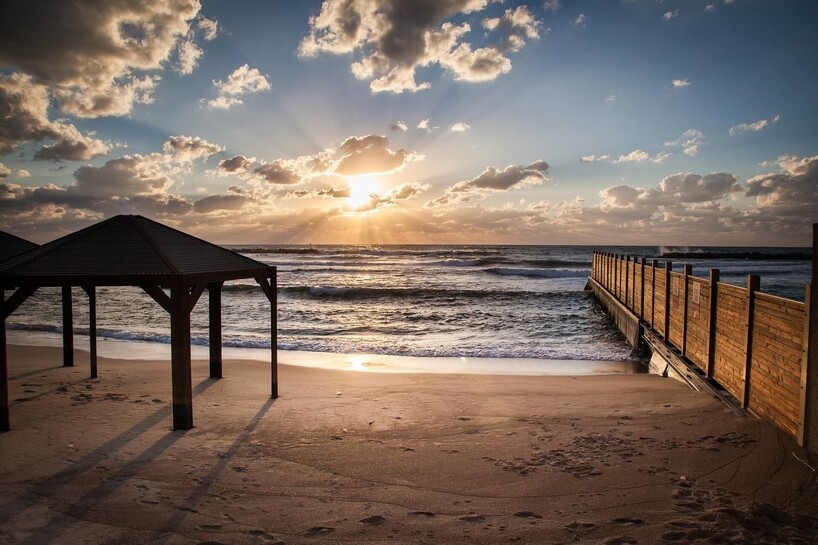What to Expect from Israel Weather
The short answer to “what to expect from Israel weather” is sunshine! The weather in Israel is generally hot, sunny and pleasant most of the year. If you are planning a trip to the Holy Land you probably won’t encounter any problem with the weather in Israel.From about April to October there is continual sunshine and from November to March the weather is cooler with occasional rain storms and cloudy days. December to February are the wet months and July and August are the hottest months. Tel Aviv has an average of 3300 sunshine hours a year.
Tel Aviv, Haifa, Herzliya and Natanya Weather
Along the west coast of Israel (Tel Aviv, Haifa, Natanya) the weather is hot and humid in the sunny months and mild and rainy in the winter. You can enjoy the sea breeze which helps to cool down the coast. The average temperature in Tel Aviv is about 14 (°C) -18 (°C) in January and 26 (°C) -30 (°C) in August, the country’s hottest month. The sea is warm enough for swimming from about June to November.
Jerusalem, Bethlehem and Nazareth Weather
Inland cities like Jerusalem, Bethlehem and Nazareth which have elevated locations experience colder winters than the coast. The winter is still mild compared to Europe but it does get cold. In January and February the elevated cities and the Golan Heights mountain range can experience snow. The weather is particularly chilly in Jerusalem at night. During the hotter months of the year the inland cities do not have the same high level of humidity as the coast. Average temperatures in Jerusalem are about 6 (°C) -12 (°C) in January and 20 (°C) -29 (°C) in August.Israel Weather North and South
The weather in northern Israel is hot in the summer but the cooler months are similar to those in southern Europe. The mountain tops can be covered in snow and the rainfall allows for the thriving farmlands and vineyards. In Tiberius on the edge of the Sea of Galilee average temperatures are 8 (°C) -17 (°C) in January and 23 (°C) -36 (°C) in August.In the southern region of Israel there are dry deserts which experience harsh summers and hot winters spotted with heavy downpours. Summer is not the best time to visit southern Israel and the temperatures are unpleasantly hot. In Eilat, Israel’s southernmost city the best time to visit is not necessarily in the hottest months of July and August. You can enjoy a sunny beach holiday in Eilat in spring and autumn. Sunshine is virtually guaranteed year-round in the Dead Sea and Eilat regions. Average temperatures in Eilat are about 10?C-20?C in January and 26 (°C) -38 (°C) in August.
 Login / Register
Login / Register
 Contact Us
Contact Us
 Certificate of Excellence
Certificate of Excellence Guaranteed Departure
Guaranteed Departure Low Prices Guaranteed
Low Prices Guaranteed 24/7 Support
24/7 Support




